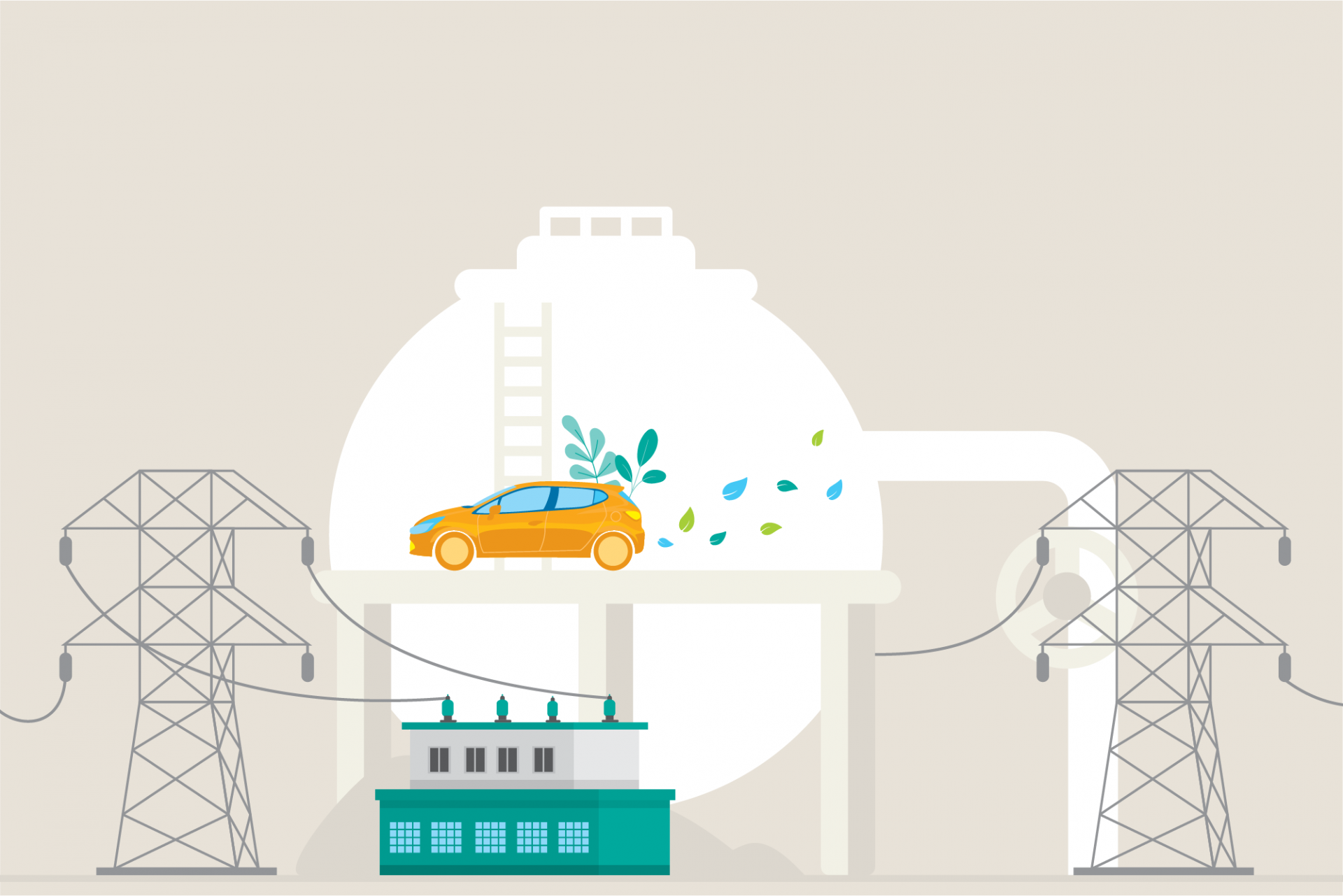Just like oil, natural gas is expected to experience the largest demand shock in the history of global natural gas markets with a 3 per cent decline, equivalent to 120 billion cubic metres.
03/11/2020 • 7 mins read
A Cleaner Alternative
Gas remains a significant, viable option in the robust energy mix.
Jacqueline Pereira

According to the Energy Agency (IEA), this is caused by successive impacts of lower heating demand from a warmer winter, and the business shutdowns, travel restrictions and stay-home advisories, resulting from COVID-19.
“This unprecedented shock, coupled with an oversupplied LNG market and compounded by LNG projects that came online in 2019, caused spot and contract LNG prices to tumble,” notes PETRONAS Vice President of LNG Marketing and Trading, Shamsairi M Ibrahim.
To mitigate the impact, immediate measures were put in place to optimise gas and LNG production profiles by institutionalising the agile production process, allowing it to protect and maximise the value of gas resources.
“That said, as our customers will continue to receive uninterrupted supply of LNG,” affirms Shamsairi, “the PETRONAS integrated margin will also be protected.”
He believes that when global economies recharge and international borders reopen, gas demand will return to pre-pandemic levels.
“Most of the post-2021 growth will take place in Asia, led by China and India, where gas benefits from strong policy in supporting the move to a low carbon economy, in line with the United Nations Sustainable Development Goals,” forecasts Shamsairi, he looks forward to contributing creative solutions to meet challenges and believes that gas fits into this aspiration.
With industry experts touting this challenging period an opportunity for a “great reset” towards a lower carbon future, Shamsairi says that this gives PETRONAS an opportunity to position itself as a cleaner energy solutions partner by developing forward-thinking and long-term strategies that will support the growth of the world economy in a sustainable and equitable way.


To mitigate the impact, immediate measures were put in place to optimise gas and LNG production profiles by institutionalising the agile production process, allowing it to protect and maximise the value of gas resources.
SHAMSAIRI MOHD IBRAHIM
"Our LNG team has been collaborating with all stakeholders in developing fit-for-purpose solutions. We invest in people, technology and innovation to provide energy solutions that go beyond just selling and delivering LNG.”
Shamsairi highlights that, “In pushing this envelope further, our LNG team has been collaborating with all stakeholders in developing fit-for-purpose solutions. We invest in people, technology and innovation to provide energy solutions that go beyond just selling and delivering LNG.”
Among some of the flexible operational solutions that have proven successful for PETRONAS:
Carbon Credentials
“The established gas and LNG ecosystem and infrastructure had been and continue to be the backbone for delivering clean and reliable energy to homes, as feedstock fuel for industry, and as an alternative cleaner fuel for land and marine transports”, affirms Shamsairi.
In embracing International Maritime Organization 2020 regulations, PETRONAS has been collaborating with various ministries, authorities and industry players to co-develop the much needed policies, guidelines and procedures for safe and effective marine LNG bunkering operations. With this, we are actively working towards developing a global network of LNG bunkering supply chain via smart partnership with port operators and international industry players.
Despite the decreasing cost of renewables and the current challenging climate, to Shamsairi, natural gas will continue to be a complementary energy source for wind and solar. “Their proven record of performance characteristics make it the best fuel to partner with wind and solar energy.”
Looking Ahead
While remaining cautiously optimistic, Shamsairi adds that the current volatility in pricing and short-term positioning have resulted in massive LNG investment deferments.
“As COVID-19 reduced oil demand and prices, players are reacting by reducing capital spending and pushing out final investment decisions of new LNG projects.” With much at stake, Shamsairi raised his concern on whether enough long-term supply can be built and new LNG projects can be smoothly developed at current price levels.
Moving forward, the focus will be on improving LNG’s energy-intensive carbon credentials. Especially with continuous debates on reducing carbon intensity of the entire energy value chain, with more LNG-importing and exporting countries are starting to impose strict carbon policies, and shareholders’ and financiers’ preference for greener LNG.
“At PETRONAS, opportunities for LNG not only lie in optimising plant operations, but also in decarbonising facilities through emerging technologies such as hydrogen and carbon capture to stay relevant in a net zero world,” said Shamsairi.


“We will not only continue to advocate how LNG has consistently contributed to this objective, but also examine the many, new ways we can use energy in our day-to-day life to reduce carbon emissions.”







